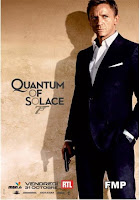 Now that Cardinal Health (CAH) has finally resolved its long-standing DEA issues, the company has quietly launched a series of intriguing Medication Safety web pages.
Now that Cardinal Health (CAH) has finally resolved its long-standing DEA issues, the company has quietly launched a series of intriguing Medication Safety web pages. I’m impressed by these initial public efforts at education and greater transparency, although it’s obviously a work-in-progress. Cardinal needs to more clearly describe how a more secure supply chain will translate into sales growth among its now highly monitored pharmacy customers. I’d also like to see the initiative evolve into anti-counterfeit education aimed at changing behavior by pharmacy buyers and consumers.
See Cardinal: The Once and Future Wholesaler for my recent update on the company’s pharmaceutical distribution business.
MONITORING SUSPICIOUS ORDERS
Cardinal posted their long-awaited explanation about plans to prevent diversion by its customers at The Cardinal Health Suspicious Order Monitoring Program. According to the site, the system “flags and holds orders that warrant further inspection,” presumably with enough accuracy and effectiveness to avoid catching innocent pharmacies in their net. I hope Cardinal provides details on the system’s effectiveness, especially given the risk of false positives among the customers they are trying to win back.
The new system is reportedly devoted solely to controlled substances and DEA compliance (per Mark Hartman, SVP of supply chain integrity and regulatory operations as cited in Pharmaceutical Commerce). In other words, the company “continues to work” on systems for complying with the December 2006 (!) Assurance of Discontinuance signed with the New York Attorney General. See my post Cardinal's Sins for background on that matter.
BTW, there are links to some good article on diversion prevention under Resources.
FFF GETS AN “A”
Cardinal has also added web pages about counterfeit drugs called What you can do, although I don’t understand the target audience for this material. Are they speaking to consumers, most of whom have never heard of a “drug wholesaler”? Are they communicating to the pharmacies that they will now be monitoring?
IMO, Cardinal should take a look at the approach used by privately-held distributor FFF Enterprises for years.
While I don’t have first-hand knowledge of FFF’s operations (nor do I have a business relationship with FFF), I have been very impressed by their public commitment to educating pharmacy buyers on the benefits of supply chain security. FFF’s website has a set of pages labeled Patient & Product Safety, trumpets a concept called “Guaranteed Channel Integrity,” and recently announced its (trademarked) 8 Critical Steps to Guaranteed Channel Integrity™.
SELL BENEFITS, NOT FEATURES
I have long argued that the risk of counterfeits could be reduced by tackling the demand-side security problem, i.e., making sure that pharmacy buyers and consumers purchase within a secure supply chain. Thus, consumers shouldn’t buy from random online websites, pharmacies should be very cautious about secondary sourcing, there should no be “trading networks” to facilitate transfers between unaffiliated independent pharmacies, etc.
Regulatory and technology solutions are necessary but are not sufficient to close these diversion gateways and stop counterfeits from entering the legitimate pharmacy supply chain. But with regulation on hold and technology in flux, manufacturers and other wholesalers should follow the examples of Cardinal and FFF to emphasize WIIFM (What’s In It For Me) for pharmacy customers and consumers.
-----

Apparently, profiling which bears a striking similarity to "driving while black" is acceptable in the business and regulatory world. The presumption of impropriety among independents is insulting. Having to attest that I, as a licensed professional, will behave ethically is a personal and professional affront. Or, am I just too sensitive?
ReplyDeleteAdam,
ReplyDeleteThoughtful post, as always. But you don't mention the fact that Cardinal is being forced to do this by the DEA, so maybe the DEA is making them put up the consumer info. Or maybe the DEA will make Cardinal invest in general advertising.
Anyway, I do appreciate the heads up because I did know that these web pages were there.
MJ
I think their diversion prevention still has a ways to go. Last week their Auburn DC (one of the previously closed DCs) wouldn't fill an order for us because someone in the office couldn't read the number "8" in the date ordered field of a DEA-222 form (ie. 12/5/08). But later in the week they sent hydromorphone (Dilaudid) 4mg tablets (10 x 100) instead of the ( 2mg tablets that we'd ordered. Hmmmmm...
ReplyDeletePerfection, the great impossibility.
With all Big 3 wholesalers, it appears typical for there to be a disconnect between word and action. They say they are interested in a secure supply chain, but not really. Every step they have taken has been window-dressing. Take for example, returns back to wholesaler from pharmacy that go back on their shelf for resale. Industry average is 3% that is recirculated. This yields approximately $8 billion of recirculated product in the U.S. without any checks and balances. Actions speak much louder than words.
ReplyDelete